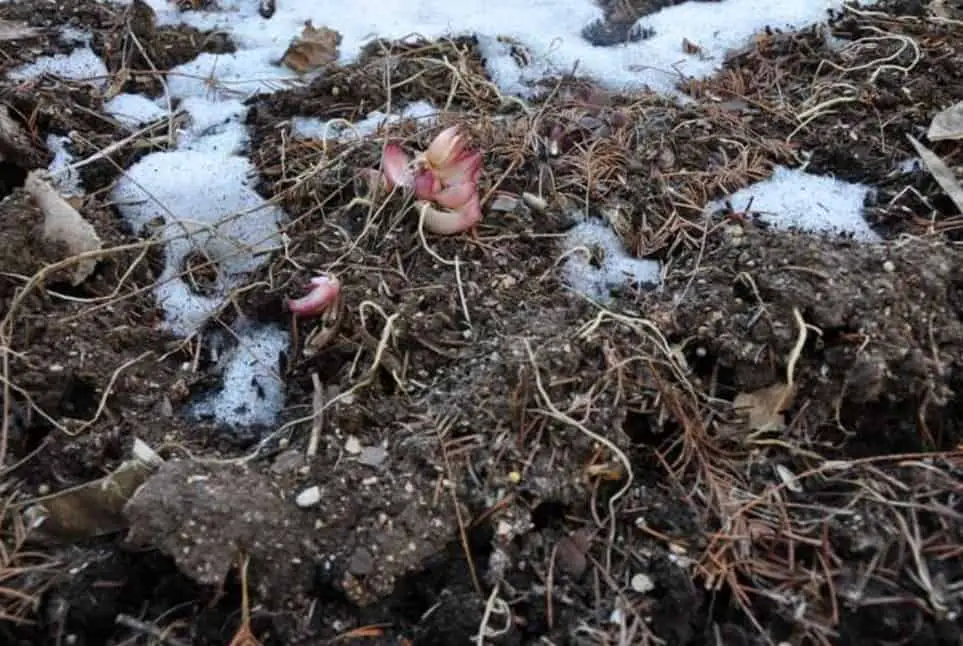Consider protecting your plants from frost heave if you grow in a frigid climate or with multiple harsh frosts yearly. Early spring and late autumn are prime times for frost heave because of the colder temperatures and frequent soil wetness. Heaves may occur in any soil, but since they can hold more moisture, soils like silt, loam, and clay are more prone to them.

What is Frost Heave?
After the soil has been subjected to cold temperatures and much moisture, frost heave occurs. The soil and plants are lifted up and out of the earth by the pressure caused by the alternating freezing and thawing temperatures. Water in the soil freezes when cold air descends into the ground, converting it to tiny ice particles. A coating of ice is ultimately formed when these particles combine.
As more liquid from deeper soil layers is pulled upward and freezes, the ice expands, putting too much pressure on both the downward and upward directions. The downward pressure harms the compacted earth. An appropriate amount of airflow or drainage cannot occur in compacted soil. Along with harming the soil’s structure, the upward pressure also causes frost heave, often characterized by large, deep fractures in the ground.
These fissures let the chilly air above reach the plant roots. In extreme circumstances, the plants may be wrenched out of the soil and left to dry out and perish in the open.
How to Prevent Plant Frost Heave
How can you safeguard your plants against frost heave? Using mulch, such as pine bark or wood chips, to insulate the soil, or draping evergreen boughs over the garden, is one of the best strategies to stop frost heave in gardens. This lessens the entrance of frost and helps to balance temperature variations.
Raking away any potential low places is another approach to help minimize frost heave. These are ideal periods when preparing and tidying up the garden in the spring and fall. Compost should also be added to the soil to enhance drainage further and reduce the likelihood of heaving. In the spring, soils with good drainage will also warm more quickly.
Additionally, plants that can withstand cold temperatures should be picked, such as perennials that can withstand the cold or deciduous trees and bushes. Due to the damage caused by frost heave, unprotected moist, frozen ground is one of the most frequent reasons garden plants die in the winter.
Keep your plants safe from the grips of frost heaves. Spend more effort insulating your garden now; all it takes is one strong frost heave and all your hard work to ruin it.

